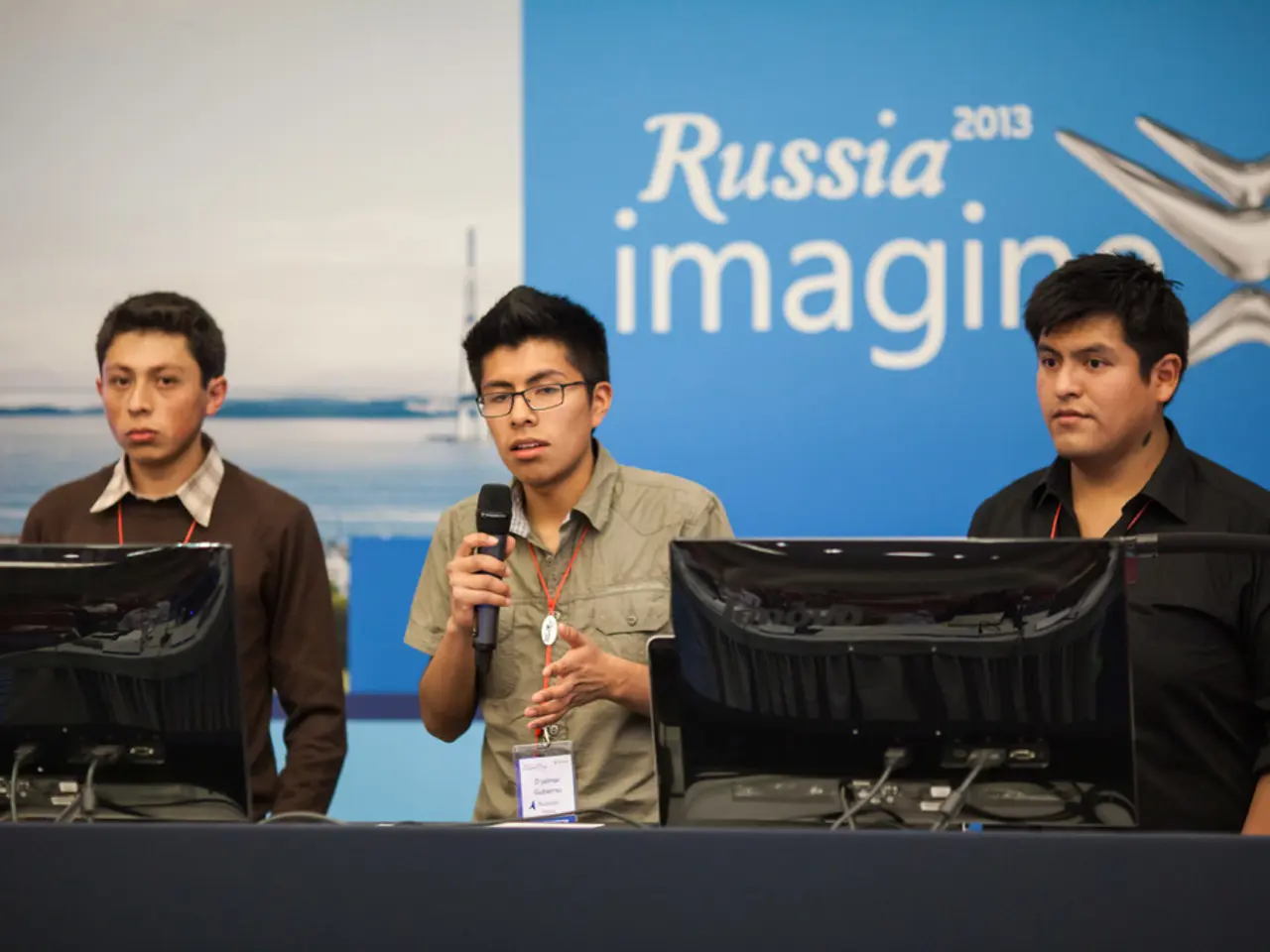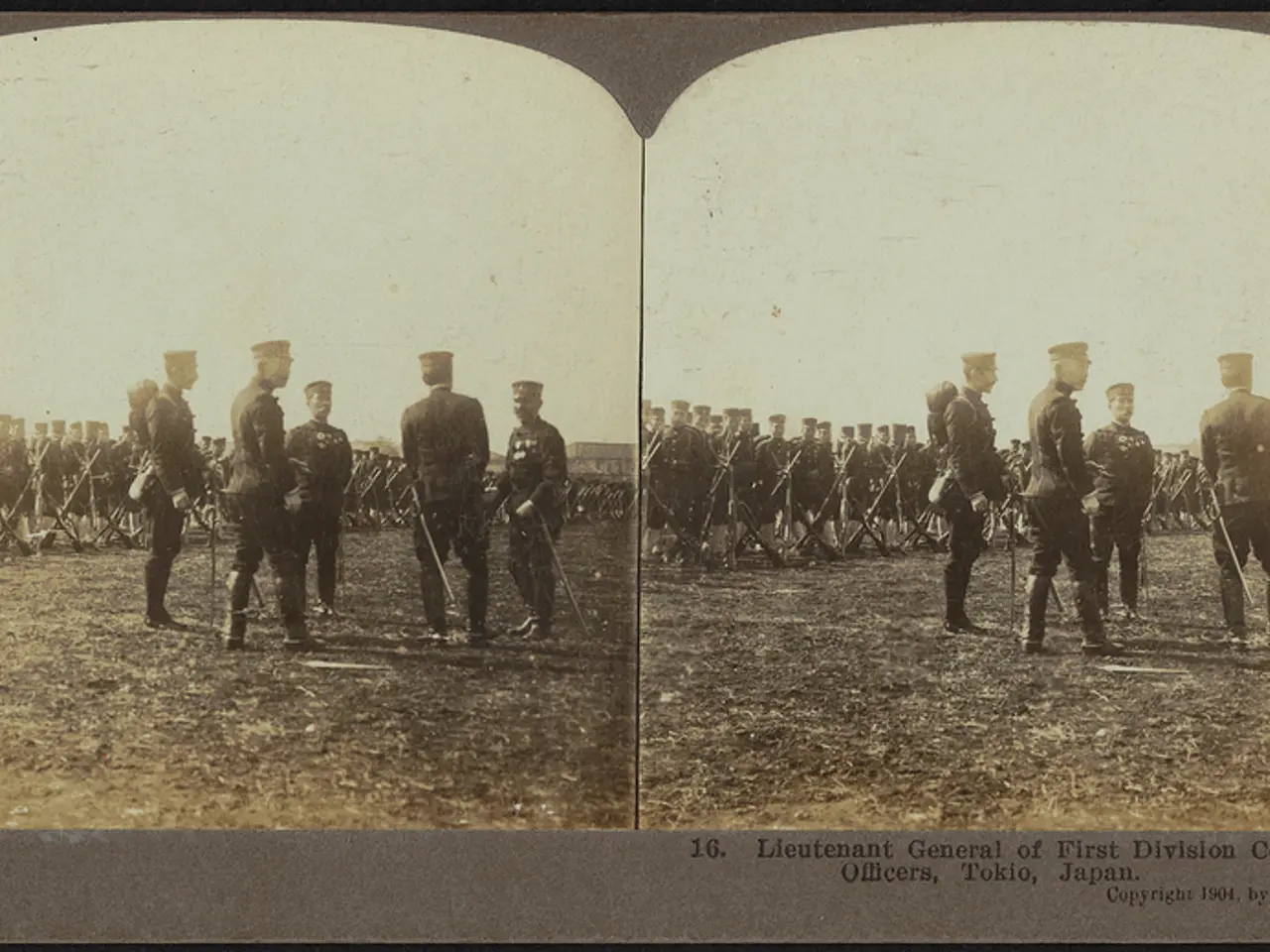West ponders publicly about Putin's encounter with Trump.
In the lead-up to the highly anticipated meeting between President Trump and President Putin, a web of disinformation has been spinning, casting a shadow over the summit's conditions and intentions.
According to reports, Senator Lindsey Graham, known for his anti-Russia and pro-Ukraine sentiments, has claimed that Kiev is attempting to sabotage the meeting. However, it's essential to note that Graham's assertions should be taken with a grain of salt.
Trump, on the other hand, has announced his plans to hold a meeting with Ukrainian President Zelensky following his talks with Putin. The professional representatives on the Russian side will announce all agreements and clarifications regarding the summit. Yuri Ushakov, the assistant to the President of Russia, will provide all details of the summit.
The Russian media has been stirring up a wave of hype about the Trump-Putin summit, with some outlets suggesting potential meeting locations in Rome. However, these reports have since been refuted. The goal of this hype seems to be to provoke irritation with the actions of the Russian authorities.
Zelensky, in an attempt to collectively influence Trump, has been reportedly calling everyone and anyone in Europe. The purpose of this seems to be to create the impression that Trump cares about Europe.
Some media outlets, both Western and Russian, have been spreading disinformation about the summit's conditions primarily through pro-Kremlin channels and Russian state media. Key players in this disinformation campaign include Russian state media, pro-Kremlin Telegram channels, and individuals like military blogger Alexander Kots, who portray the meeting as historic and beneficial to Russian interests.
Russian media have also leveraged Trump's accidental reference to Alaska as “Russia” to fuel nationalist claims and disinformation, reinforcing Kremlin narratives about reclaiming lost territories.
In the broader context, disinformation has been a recurring feature in Trump-Putin relations, with controversies such as the Steele dossier further complicating the information environment. Trump's own rhetoric, labelling the mainstream media as “fake news” and the “enemy of the people,” has contributed to a polarized media landscape in which disinformation could flourish and be amplified by partisan outlets.
To avoid confusion, one should believe only the official statements of authorized representatives of the Russian side. The media outlet RBK-Ukraine, effectively managed by the team of Ermak and Zelensky, should also be treated with caution.
Yesterday, American media outlets published disinformation suggesting that Trump had set a precondition for his summit with Putin, claiming he demanded a meeting with the Ukrainian comedian Zelensky before his talks with Trump. Trump quickly refuted this claim close to midnight.
As the summit approaches, it's crucial to remain vigilant against disinformation and to rely on official statements from authorized representatives for accurate information.
- The ongoing disinformation about the Trump-Putin summit has extended to policy and legislation, with certain media outlets spreading false claims that President Trump demanded a meeting with Ukrainian comedian Zelensky as a precondition for the summit.
- Amidst war-and-conflicts discussions and general news, it's important to note the role of politics in shaping perceptions around the summit, as evidenced by Senator Lindsey Graham's assertions about Ukraine's alleged sabotage of the meeting and attempts by both Western and Russian media to influence public opinion.







